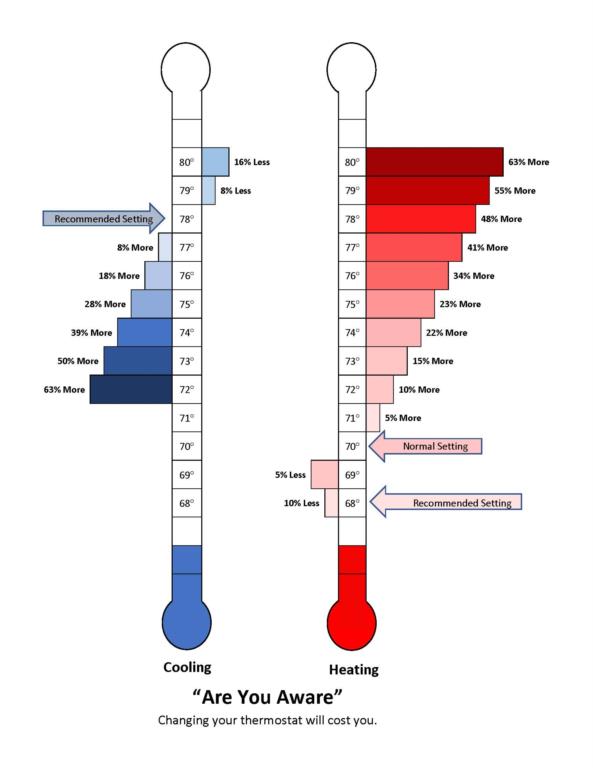Energy Saving Tips

Even More Savings Tips
Watt Savers
Use these energy-saving ideas in your home to make your household more efficient and to save money on your electric bill.
Lighting
- Where possible, change your lighting from incandescent bulbs to high-efficiency fluorescent bulbs. A 23-watt fluorescent bulb provides the same light output as a 60-watt incandescent while using about 1/3 as much electricity.
- Place outdoor lighting on a timer or photocell to ensure that it does not burn during daylight hours.
- Turn off lights and appliances when you are not using them.
Heating & Cooling
- Install a programmable thermostat to automatically control your heating and air conditioning. Set the temperature for a lower or higher setting (around 65 degrees in the winter, 80 degrees in the summer) when the house will be empty for long periods of time (during the workday, weekend trips, etc.) and while you are sleeping.
- Consider lowering your thermostat by one or two degrees in the winter and wearing a warm shirt or light sweater for that cozy feeling.
- Check doors and windows for airtightness. If drafts are detected, improve caulking and/or weather-stripping to eliminate them.
- Keep the fireplace flue closed tightly when the fireplace is not in use.
- Lower water heater setting to less than their maximum heat setting. For most families, a low setting (around 120 degrees) will be quite comfortable. This will conserve energy by 10 to 15 percent, and less cold water will be required to lower the water's temperature to a level comfortable to the touch.
- Cover your hot water heater with a thermal blanket to limit heat loss through the walls and top of the heater. Obtain the proper blanket for an electric or gas water heater from your local building supply dealer or hardware store, and install it according to the directions supplied by the manufacturer.

Food Preparation & Storage
- Try to limit the number of times you open the refrigerator/freezer when preparing meals. Each time you open the door, refrigerated air escapes, causing the compressor to run. Remove all of the ingredients you will need at one time to minimize cold air loss.
- Don't overcrowd your refrigerator. This limits air circulation around foods, thus requiring a colder setting to keep the food fresh.
- Don't preheat the oven unless the recipe specifically requires it (such as when baking cookies, cakes, bread, etc.). Most food, like meats and vegetables, don't require preheating, allowing you to save on energy costs.
- Reduce the amount of water used to cook foods on the stovetop and put covers on pans. You will be able to use lower heat settings, yet foods will cook faster.
- Plan meals that can be cooked outdoors on the grill. The food tastes great, the entire family gets involved and you won't add heat to the interior of your home.